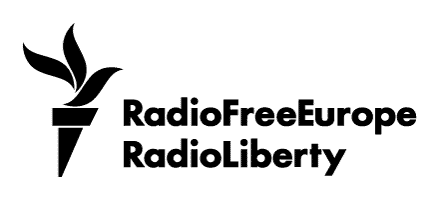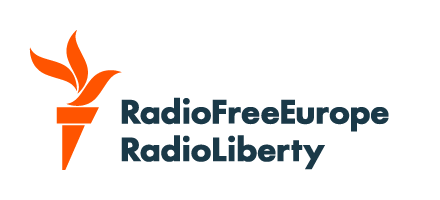Viktor Yushchenko came to power in a popular movement dubbed the Orange Revolution. And 100 days after he took office, he remains the most popular politician in Ukraine.
A recent poll by Democratic Initiatives Foundation put his popularity close to 60 percent.
Volodymyr Horbach, an analyst at the Kyiv-based Institute of Euro-Atlantic Cooperation, said Yushchenko's popularity is steadily rising. "The president's popularity has increased throughout the period of 100 days," he said. "It is happening because the Ukrainian people are ready to trust this president and to trust these political standards he presents."
At the same time, the number of those who believe Yushchenko is heading in the wrong direction has fallen. Last September -- as the Orange Revolution gathered force -- 26 percent disapproved of Yushchenko. Today that number has dropped to 21 percent.
Horbach said there is a tendency for people who previously opposed Yushchenko to either be neutral toward him or to support him.
Analysts say Yushchenko's first 100 days show that the new authorities differ from former administrations in many aspects.
Stuart Hensel of the London-based Economist Intelligence Unit (EIU) said Yushchenko made a strong start by putting a good team in place. "He has sent very strong signals that he and his new team are going to seriously address the legacy that they inherited from the [former President Leonid] Kuchma era," he said.
Yushchenko is trying to fight corruption and to improve the transparency of the political process and these are the steps people want to see, the analyst said.
The government has promised to investigate hundreds of officials from the former Kuchma administration and criminal charges have already been filed against some of them.
The most visible case is that of Borys Kolesnykov, head of the Donetsk Oblast Council, who is in prison awaiting trial on charges of extortion. Analysts say this case, along with a court decision that the privatization of the giant Kryvorizhstal enterprise in 2004 was illegal, indicates for many that the government is serious in its anticorruption struggle.
However, Yushchenko's biggest achievements are in the field of foreign policy. The president has devoted 29 days to 12 foreign trips and strongly announced that his country wants to join the EU and NATO.
Hensel says Yushchenko has managed a breakthrough in relations with the West: "I think he has been very successful at changing perceptions in the EU and in the other Western organizations about what sort of a partner they can find in Ukraine. I think he has managed to put together a team of foreign policy advisers who now go to Brussels and make commitments that the EU thinks Ukraine will honor, which is a major change from what existed under Kuchma."
Hensel says Yushchenko has also managed to improve Ukrainian relations with Russia, which had reached a nadir when Russian President Vladimir Putin supported Yushchenko's rival Viktor Yanukovych during last year's Ukranian presidential election.
Ukraine hopes that the EU will grant it "market-economy" status by June and it hopes to join the World Trade Organization later this year.
However, administrative measures taken by the government to counter the effects of rising oil prices and food costs have come under fire from the opposition as well as economists who say that they are too aggressive and inefficient in the long run.
Hensel says this tendency causes some concern: "There has been a tendency under the new government to continue to rely on some of the administrative measures and instruments that the previous regime also used to use, that the opposition used to criticize them in the past. And I think this new government on occasion has showed the tendency to do the same thing."
A new budget adopted in March has 24 percent more money earmarked for pensions and 57 percent more for public wages. As a result, popular incomes went up by 25 percent, but the increase in social spending has also led to inflation equaling 4.4 percent in the first quarter of the year.
Horbach says Yushchenko cannot behave differently because he has strongly promised a better life for his voters.
Horbach also says administrative measures are being used only because the Ukrainian economy is still in a transition and market regulation is needed for a while.
A recent poll by Democratic Initiatives Foundation put his popularity close to 60 percent.
Volodymyr Horbach, an analyst at the Kyiv-based Institute of Euro-Atlantic Cooperation, said Yushchenko's popularity is steadily rising. "The president's popularity has increased throughout the period of 100 days," he said. "It is happening because the Ukrainian people are ready to trust this president and to trust these political standards he presents."
"I think he has been very successful at changing perceptions in the EU and in the other Western organizations about what sort of a partner they can find in Ukraine."
At the same time, the number of those who believe Yushchenko is heading in the wrong direction has fallen. Last September -- as the Orange Revolution gathered force -- 26 percent disapproved of Yushchenko. Today that number has dropped to 21 percent.
Horbach said there is a tendency for people who previously opposed Yushchenko to either be neutral toward him or to support him.
Analysts say Yushchenko's first 100 days show that the new authorities differ from former administrations in many aspects.
Stuart Hensel of the London-based Economist Intelligence Unit (EIU) said Yushchenko made a strong start by putting a good team in place. "He has sent very strong signals that he and his new team are going to seriously address the legacy that they inherited from the [former President Leonid] Kuchma era," he said.
Yushchenko is trying to fight corruption and to improve the transparency of the political process and these are the steps people want to see, the analyst said.
The government has promised to investigate hundreds of officials from the former Kuchma administration and criminal charges have already been filed against some of them.
The most visible case is that of Borys Kolesnykov, head of the Donetsk Oblast Council, who is in prison awaiting trial on charges of extortion. Analysts say this case, along with a court decision that the privatization of the giant Kryvorizhstal enterprise in 2004 was illegal, indicates for many that the government is serious in its anticorruption struggle.
However, Yushchenko's biggest achievements are in the field of foreign policy. The president has devoted 29 days to 12 foreign trips and strongly announced that his country wants to join the EU and NATO.
Hensel says Yushchenko has managed a breakthrough in relations with the West: "I think he has been very successful at changing perceptions in the EU and in the other Western organizations about what sort of a partner they can find in Ukraine. I think he has managed to put together a team of foreign policy advisers who now go to Brussels and make commitments that the EU thinks Ukraine will honor, which is a major change from what existed under Kuchma."
Hensel says Yushchenko has also managed to improve Ukrainian relations with Russia, which had reached a nadir when Russian President Vladimir Putin supported Yushchenko's rival Viktor Yanukovych during last year's Ukranian presidential election.
Ukraine hopes that the EU will grant it "market-economy" status by June and it hopes to join the World Trade Organization later this year.
However, administrative measures taken by the government to counter the effects of rising oil prices and food costs have come under fire from the opposition as well as economists who say that they are too aggressive and inefficient in the long run.
Hensel says this tendency causes some concern: "There has been a tendency under the new government to continue to rely on some of the administrative measures and instruments that the previous regime also used to use, that the opposition used to criticize them in the past. And I think this new government on occasion has showed the tendency to do the same thing."
A new budget adopted in March has 24 percent more money earmarked for pensions and 57 percent more for public wages. As a result, popular incomes went up by 25 percent, but the increase in social spending has also led to inflation equaling 4.4 percent in the first quarter of the year.
Horbach says Yushchenko cannot behave differently because he has strongly promised a better life for his voters.
Horbach also says administrative measures are being used only because the Ukrainian economy is still in a transition and market regulation is needed for a while.




